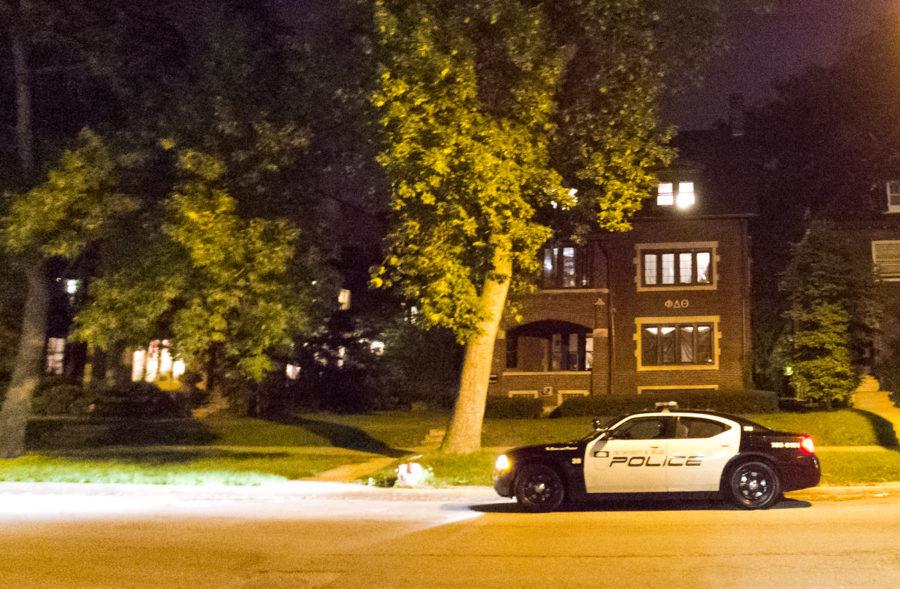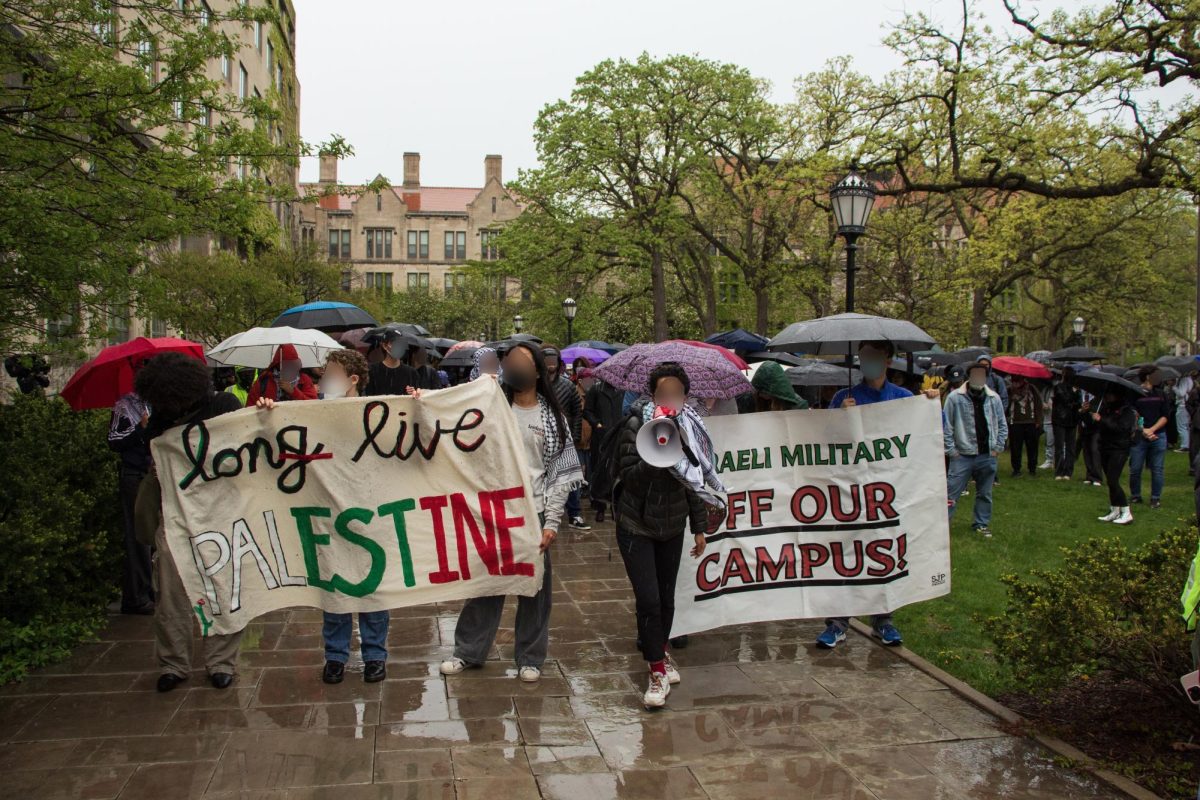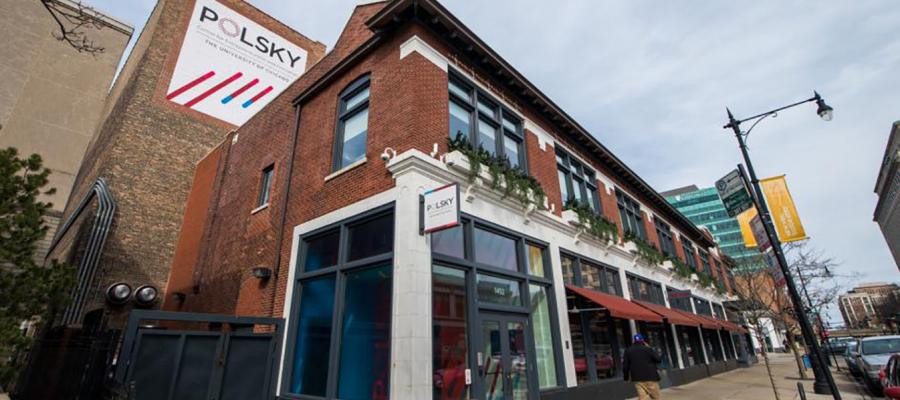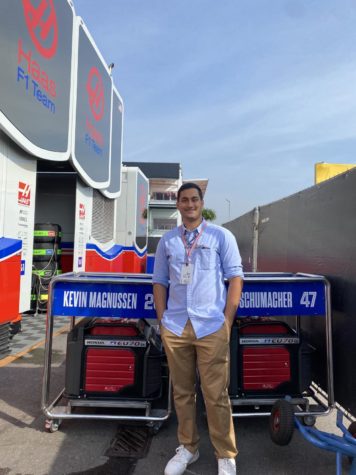In an interview last fall, Soren Dayton, a member of the 2023 Cohort of Democracy fellows at the Center for Effective Government (CEG) within the Harris School of Public Policy, sat down with The Maroon to discuss his education, career, theories of change, and views on some of the trends shaping national politics.
Dayton has worked in and around politics for the last two decades and currently serves as the Director of Governance at the Niskanen Center. His focus is on developing and advocating for institutional reforms with the aim of creating more effective leaders and governments.
The CEG will be hosting an event with another Democracy Fellow, Dan Tangherlini, on January 17.
This interview has been lightly edited for clarity and abbreviated for length.
Chicago Maroon: Just to jump right in here, why the Center for Effective Government?
Soren Dayton: I came to this through a couple of ways. I am a graduate of the College. I grew up in Chicago. And I spent a good chunk of my last job between 2017 and 2023 thinking about what would be a useful institutional reform agenda to respond to the various forces in American governance. And at least in the world that I have been in, much of that conversation has been driven by comparative scholars, so I wanted to both source ideas and stories from people who were a little bit more grounded in the American political experience.
I read one of [Director of the CEG] Will Howell’s books and then I read some more [of his] essays, and when I was in Chicago to see my mom, I reached out and met Will. [The CEG] is one of the few places where there’s a deliberate attention to the kinds of questions that I find really helpful. I’ve been really excited by [the CEG’s] trajectory and been in touch with them and vice versa ever since.
CM: Speaking of trajectory, I think you have had a unique one. You were a Ph.D. student [at UChicago] who dropped out and founded a software company and went on to work in Congress. Can you walk us through that career path?
SD: I graduated from the College in 1999, and I actually took a year off in my sophomore year, which has actually been written about in The Maroon, because of some mental health issues. When I came to the College, I started in math and physics, but during my time off I decided I wanted to switch focus. So I switched to anthropology, but I still finished my math major because I was most of the way through already.
Then I applied to and got accepted into the Ph.D. program in anthropology and linguistics, but I dropped out at the end of orientation to start a software company with a friend of mine, who was a graduate student. We did that from 1999 to 2002, but that cratered in 2002 due to the post-9/11 financial crisis when capital investment dried up.
So I just got thinking, what do I want to do next? I had not known anyone in politics, but there was a bit of a post-9/11, rally around the flag, go serve your country kind of moment. I thought maybe I’ll try Congress. I took a couple months off and then volunteered on a campaign and then went out to DC.
I worked for a member from Southern Michigan, Nick Smith, and had some super wild experiences, including the longest held open vote in the history of Congress at the time, the Medicare Part D vote in late 2003. Some people have actually pointed to that as the first of the major fissures in the Republican Party.
After that, I did some independent political consulting of various sorts, then the McCain campaign and PR firms.
CM: You mentioned the McCain campaign in 2008, what was that experience like?
SD: I was working with delegates then in delegate communication, which is a whole mix of things. I had some experience doing delegate counting from various other activities in my life; it’s a weird special skill set. There’s a small-ish set of people you go to if you need to do it.
CM: Based on your experience running the election day operations communications war room of the McCain campaign, how similar was election day 2008 compared to today, especially in light of the focus on election integrity nationally?
SD: By 2004, in both parties, probably better developed in the Republican Party in ’04 and then probably better developed in the Democrats in ’08, you have a very robust set of data operations. You have very granular information about who is voting and, in very contested places, attempts to actually understand who is showing up throughout the day so that you can do [Get Out the Vote] operations.
Now, some of that is very traditional ward politics. I spent Election Day 2004 at a polling station in Philadelphia, where the democratic precinct captain had been precinct captain since Eisenhower’s reelect. He knew everyone in his precinct, and he told me stories about how, for many of them, he had gotten parking tickets waived and things like that. He knew the ecosystem he operated in. He knew who [the voters] were, and if they didn’t vote by a certain time, he would send off one of his sons to go knock on their door.
Now there’s a sense in which you can see one of the transformations in our politics, from the local knowledge that this dude had and “governance services” that were provided locally.
I think you’re seeing a whole bunch of interesting evolutions around that also track with a migration from the intermediating institution on the ground to people running ads [targeted to you], and they know where your absentee ballots are. 2004 and 2008 up through today are all intermediate points [for that transformation].
But I also wonder if there are factors with everybody parachuting in from everywhere, in these contested precincts and counties that actually create a little bit of a sense of, “What the hell is going on? Who are all these people here?”
Democrats have talked about suppression, and Republicans talked about integrity. Everyone had anxieties about this process in a whole bunch of ways. You can see the transformation of the political system; you can see a transformation about how and when people invest in the political system in the sort of ritual of voting day. The ways in which [voting] has gone through the same cultural disintermediation and where people have lost trust in institutions.
CM: You’ve had a pretty global career. You spent time in India working with teams on criminal justice there. What has that been like?
SD: Actually, there’s a University of Chicago connection. The NGO International Justice Mission was founded by Gary Haugen, who was a law student here. He gave one of the commencement addresses when my wife graduated from the law school here.
I’ve been super lucky to be able to see how the same set of skills that I initially learned in DC translate to Bangalore, India. That wasn’t obvious to me when I went, and that wasn’t obvious to the NGO, who at the time didn’t know what to do with me either. The disciplined, evidence-based advocacy and communications strategy [I learned about in DC] turns out to be useful pretty much everywhere.
CM: And now at the Niskanen Center, where you currently work, it seems like you’re an advocate without a specific candidate?
SD: Yes, I don’t work on politics at all. I am very focused on how to strengthen and renew institutions. And not just institutions, but also the sort of humans and practices. Maybe what I studied in college shows up a little bit here, but I believe in people, and I am interested in how people deploy meaning, which is why I study anthropology and not sociology or political science.
Those are things that are more institutional-focused and how institutions are shaping the political actors in them. I’m interested both in the institutions and helping leaders figure out how to navigate those institutions to accomplish their ends and how that can result in better leaders. Some of those are political, and some of those are institutional policy.
CM: Time Magazine did an article on the Niskanen Center and called it the most interesting think tank in American politics. The top-line summary of what most articles describe Niskanen as is advocating for traditionally left-wing causes through a more libertarian or classically liberal sense. Do you agree with that characterization of the Center?
SD: I would quibble a little bit with that. I think that is a reasonable interpretation that could be applied to it. But I also say we are an organization that centers a liberal society in the European sense, say Adam Smith. There are many different liberal traditions in Europe, but we use the language of open societies that comes from Karl Popper, the philosopher of science. A strong belief in an open society, market forces, liberal institutions, and a pluralistic society.
I think a lot of us come to this with degrees of humility because either we were part of coalitions that shifted, or we worked on issues and realized our intellectual tools didn’t work. For example, if you work in macroeconomics, you have been looking at the last 15 years since the financial crisis and wondering what we actually know and why we think we know it a little bit more.
CM: One of the strategies of Niskanen’s that has drawn a lot of attention and seems to epitomize the contrarian thinking of the Center has been the idea of promoting transmission lines in addition to green energy in the fight against climate change. Can you speak more on that?
SD: Good luck implementing your green energy without transmission. We don’t produce energy in the places that you need it, and [that is an issue] without long haul transmission. There’s a degree to which once you start drilling down and looking at how things actually get implemented, there’s a connection back to the effective government.
Once you start looking at things concretely, the implementation details get really hard. You often need to solve different problems, and the problems you end up solving have very different coalitions on the ground than the big macro politics that you read about in the newspapers.
I think [Niskanen] comes with a pretty elite-focused theory of change in the sense that you actually have to go persuade [decision-makers] about how things actually work on the ground and chip past the ideological blinders that everyone comes to things with.
In the end, policy is written by members of Congress, the staff around them, and senior agency officials with their staff around them. They [create policy] by writing things and responding to questions. This is a super complicated thing, and the question becomes how do [they] get more knowledgeable to solve [problems]? What are the actual gating issues on implementation?
Our criminal justice program points to that fact. We actually really struggle in this country with good at-home supervision. We have more people in jails, which are enormously expensive, because we don’t have good at-home supervision where you would be spending a tenth of the cost and probably have better outcomes.
CM: Do you believe money in politics has altered the decision-making process in the United States?
SD: There are things that matter with money in politics. It is probably more on the level of outside spending and not the sort of contributions to individual members. In fact, the [CEG] had a good podcast on this and how there is essentially no data that shows that [Political Action Committee (PAC)] contributions or the contributions to members of Congress have any impact on their voting behavior.
I think there are much larger questions about what ideas are discussed and how that is driven by foundation money more than corporate money or PAC contributions or things like that. What sort of theories of the economy can you use to have explanatory factors? If you’re in a political campaign, there’s a tradeoff between money and political power, where political power is actual humans and volunteers.
That was the history of the labor movement, [but] not anymore, because the labor movement has shrunk. It has been the story over the last 40 years with politically-mobilized white evangelicals as a form of political power. I think one of the places where the story is most poorly understood and told is probably the best organized grassroots entity in America, until the last couple years when it went into bankruptcy, was the [National Rifle Association (NRA)]. If you’re a member of Congress, you probably know the names of the 10 NRA organizers in your district. It’s not because they’re giving money. It’s because they actually communicate to voters who will change their behavior based on what they tell them. That’s power. That’s politics.
I think that’s an intellectual sloppiness and a political blind spot. People tend to attribute losing to bad actors as opposed to getting out-organized or getting out-strategized. I think there is an intellectual sloppiness around the money in politics argument. I put that so far down the list of major problems in our politics. Do I wish members of Congress weren’t spending as much time on fundraising? 100 percent. But that’s because they’re not paying attention to Congress, not because their donors are asking them to do things.











